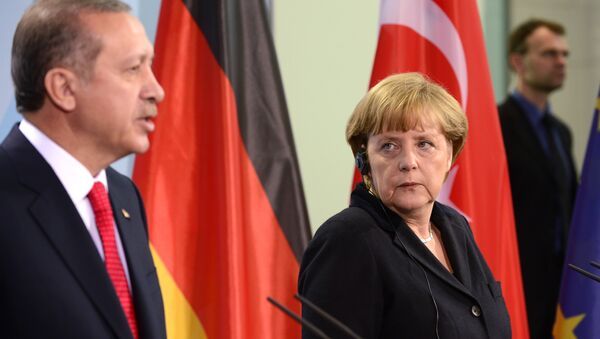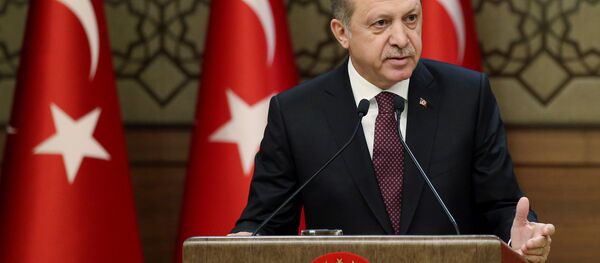MOSCOW (Sputnik) — On November 24, European lawmakers voted in favor of freezing EU accession talks with Turkey until it lifts restrictive measures in the country in place since the July failed coup. The following day, Turkish President Recep Tayyip Erdogan threatened to open the country's borders for refugees to cross into Europe, which would violate the migrant deal with Brussels.
“In any case if there is a new bigger influx of migrants coming from Turkey, the minimum that Greece can ask for is the opening of the northern border of Greece, which was the case last year when 850 thousand of migrants have passed the border. We hope that this situation will not repeat with having such kind of influx of migrants, and peace in the [Middle East] region will be established for the welfare of migrants and best of all of us,” Voutsis said.
Also in March, Brussels and Ankara worked out and agreed on a deal, under which Turkey pledged to take back all undocumented migrants that had arrived to the European Union in exchange for Syrian refugees on a one-for-one basis. In return, the European Union pledged to provide a total of 3 billion euros ($3.2 billion at the current exchange rates) to Turkey for dealing with refugees, with a possible further 3 billion-euro provision, accelerate Turkey's EU accession process and introduce a visa-free regime between Turkey and Europe.
Dublin System May Resume Only After All EU Members Meet Migrant Quotas
On December 8, EC recommended to start returning migrants and refugees coming to the European Union through Greece back to this country starting March next year. The Commission said that this would be an important step toward a return to a functional Dublin and Schengen system and that Greece had become better equipped to handle refugees, having improved its registration systems and accommodations.
"It is pending that the EU follows the decision that was taken last year concerning the responsibility of each EU member country to accept and to integrate tens of thousands of migrants … All these pending issues should stop being pending issues and afterwards we can discuss anything concerning the application of the Dublin Regulation,” Voutsis said.
Voutsis noted that the migration issue concerns the whole European Union and not just Greece.



